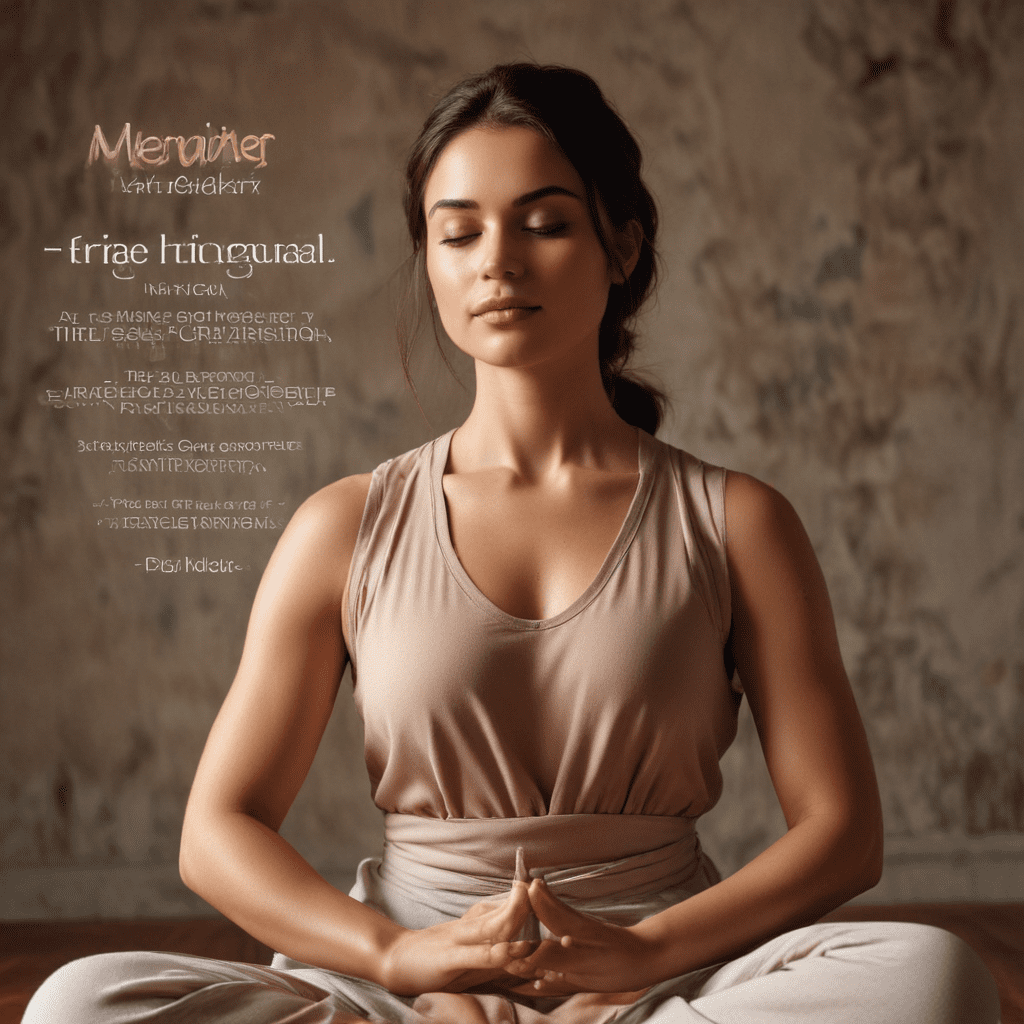
Introduction
Overview of Meditation
Meditation is an ancient practice involving various techniques to train attention and awareness, promoting mental well-being and emotional calmness. It involves focusing on the present moment, quieting the mind, and cultivating a sense of inner peace.
The link between meditation and creativity
Meditation and creativity share a profound connection. The practice of meditation cultivates various skills and qualities that enhance the creative process. By quieting the mind, improving focus, and fostering self-awareness, meditation empowers individuals to access their inner reservoirs of creativity and innovation.
Benefits of incorporating meditation into creative pursuits
Incorporating meditation into creative pursuits offers numerous benefits. It can enhance focus, reduce stress, improve problem-solving abilities, and boost emotional intelligence. These factors contribute to a more productive and fulfilling creative experience, allowing individuals to tap into their full creative potential.
How Meditation Enhances Creativity
Mindfulness and focus
Meditation cultivates mindfulness, the ability to bring full attention to the present moment without judgment. This heightened focus allows individuals to concentrate more effectively on the creative task at hand, minimizing distractions and enhancing the flow of ideas.
Different Meditation Techniques for Creatives
Mindfulness Meditation
Mindfulness meditation is a simple, yet powerful technique that involves bringing awareness to the present moment without judgment. Focus on your breath, bodily sensations, or external sounds while letting thoughts and emotions simply come and go. This practice can enhance focus, reduce stress, and cultivate a sense of calm, all of which contribute to a more conducive environment for creativity.
Loving-Kindness Meditation
Loving-kindness meditation, also known as metta meditation, cultivates feelings of compassion and kindness towards oneself and others. Begin by focusing on yourself and repeating phrases such as "May I be happy," "May I be healthy," and "May I be free from suffering." Gradually extend this kindness to loved ones, acquaintances, and even those with whom you may have difficult relationships. This practice fosters a positive and open mindset, which can spark new ideas and enhance collaboration.
Walking Meditation
Walking meditation combines physical movement with mindful awareness. Find a quiet place and take slow, deliberate steps, focusing on the sensations of your feet touching the ground, the movement of your body, and the surrounding environment. This practice can be particularly beneficial for individuals who find it difficult to sit still for extended periods. The change of pace and environment can also stimulate new ideas and perspectives.
Visualization Meditation
Visualization meditation uses guided imagery to access the subconscious mind and tap into creative potential. Begin by finding a comfortable position and closing your eyes. Imagine yourself in a creative setting, surrounded by inspiring elements. Visualize yourself generating ideas, solving problems, and bringing your creations to life. This practice can help to overcome creative blocks and bring your ideas to fruition.
Mantra Meditation
Mantra meditation involves repeating a specific word or phrase to quiet the mind and induce a meditative state. Choose a mantra that resonates with you and repeat it silently or aloud, focusing on the sound and vibration of the word. This practice can help to reduce distractions, improve concentration, and access deeper levels of creativity.
Integrating Meditation into Your Creative Process
Setting the intention
Before embarking on your meditation practice, take a moment to set an intention. Clearly identify how you want meditation to enhance your creativity. Do you wish to improve focus, reduce stress, or access new ideas?明确地确定你想要冥想如何增强你的创造力。你想提高专注力,减轻压力,还是获得新的想法? Setting an intention helps to direct your practice and increase its effectiveness.
Finding the right time
Choose a time when you can dedicate uninterrupted time to meditate. This could be first thing in the morning, during your lunch break, or before bed. Consistency is key, so try to meditate at the same time each day.
Creating a comfortable space
Find a quiet and comfortable place where you won't be disturbed. This could be your bedroom, living room, or even a park or garden. Make sure the space is free from distractions, such as noise or clutter.
Starting with short sessions
Begin with short meditation sessions of 5-10 minutes and gradually increase the duration as you become more comfortable. It's better to start small and build up gradually than to try to do too much too soon.
Finding the right technique
Experiment with different meditation techniques to find one that resonates with you. There is no right or wrong way to meditate, so try different approaches until you find one that feels comfortable and effective.
FAQ
How often should I meditate to enhance creativity?
There is no set rule for how often you should meditate. However, regular practice is key to reaping the benefits. Aim to meditate for at least 10-15 minutes each day, even if it's just a few minutes at a time.
What if I can't stop my mind from wandering during meditation?
It's natural for the mind to wander during meditation, especially when you're first starting out. Don't get discouraged; simply acknowledge the thought and gently bring your attention back to your breath or mantra.
How will I know if meditation is working for me?
You may notice subtle changes at first, such as improved focus, reduced stress, and increased creativity. Over time, you may find that you're able to generate more ideas, solve problems more effectively, and connect with your inner creative spark more easily.
Are there any risks associated with meditation?
Meditation is generally considered a safe practice. However, if you have any underlying mental health conditions, it's important to speak with a healthcare professional before starting a meditation practice.
I hope this comprehensive guide has provided you with valuable insights into the benefits of meditation for creativity and innovation. By incorporating these practices into your creative process, you can unlock your full creative potential and bring your ideas to life in a more meaningful and impactful way.


